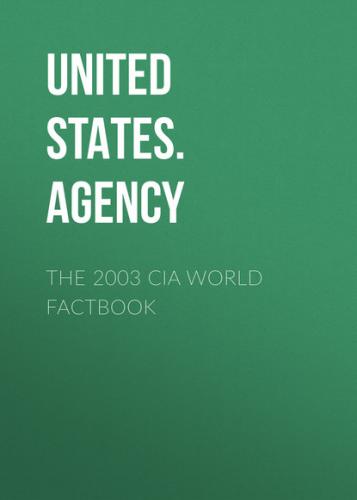may not vote and are restricted to their barracks on election day)
Executive branch:
chief of state: President Alfonso Antonio PORTILLO Cabrera (since
14 January 2000); Vice President Juan Francisco REYES Lopez (since
14 January 2000); note - the president is both the chief of state
and head of government
head of government: President Alfonso Antonio PORTILLO Cabrera
(since 14 January 2000); Vice President Juan Francisco REYES Lopez
(since 14 January 2000); note - the president is both the chief of
state and head of government
cabinet: Council of Ministers appointed by the president
elections: president elected by popular vote for a four-year term;
election last held 7 November 1999; runoff held 26 December 1999
(next to be held NA November 2003)
election results: Alfonso Antonio PORTILLO Cabrera elected
president; percent of vote - Alfonso Antonio PORTILLO Cabrera (FRG)
68%, Oscar BERGER Perdomo (PAN) 32%
Legislative branch:
unicameral Congress of the Republic or Congreso de la Republica
(140 seats; members are elected by popular vote to serve four-year
terms)
elections: last held 9 November 2003 (next to be held NA November
2007)
note: for the 9 November 2003 election, the number of congressional
seats increased to 140 from 113
election results: percent of vote by party - NA%; seats by party -
GANA 49, FRG 42, UNE 33, PAN 16
Judicial branch:
Supreme Court of Justice or Corte Suprema de Justicia (thirteen
members serve concurrent five-year terms and elect a president of
the Court each year from among their number; the president of the
Supreme Court of Justice also supervises trial judges around the
country, who are named to five-year terms); Constitutional Court or
Corte de Constitutcionalidad (five judges are elected for concurrent
five-year terms by Congress, each serving one year as president of
the Constitutional Court; one is elected by Congress, one elected by
the Supreme Court of Justice, one appointed by the President, one
elected by Superior Counsel of Universidad San Carlos de Guatemala,
and one by Colegio de Abogados)
Political parties and leaders:
Authentic Integral Development or DIA [Eduardo SUGER]; Democratic
Union or UD [Rodolfo PAIZ Andrade]; Grand National Alliance or GANA
[leader NA]; Green Party or LOV [Rodolfo ROSALES Garcis-Salaz];
Guatemalan Christian Democracy or DCG [Vinicio CEREZO Arevalo];
Guatemalan National Revolutionary Unity or URNG [Secretary General
Alba ESTELA Maldonado]; Guatemalan Republican Front or FRG [Efrain
RIOS Montt]; Movement for Guatemalan Unity or MGU [Jacobo ARBENZ
Villanueva]; Movement for Principals and Values or MPV [Francisco
BIANCHI]; National Advancement Party or PAN [Secretary General
Leonel LOPEZ Rodas]; National Unity for Hope or UNE [Alvarado COLOM
Caballeros]; New Nation Alliance or ANN, formed by an alliance of
DIA, URNG, and several splinter groups most of whom subsequently
defected [led by three co-equal partners - Nineth Varenca MONTENEGRO
Cottom, Rodolfo BAUER Paiz, and Jorge Antonio BALSELLS TUT]; Patriot
Party or PP [retired General Otto PEREZ Molina]; Progressive
Liberator Party or PLP [Acisclo VALLADARES Molina]; Reform Movement
or MR [Secretary General Alfredo SKINNER-KLEE]; Unionista Party
[leader NA]
Political pressure groups and leaders:
Agrarian Owners Group or UNAGRO; Alliance Against Impunity or AAI;
Committee for Campesino Unity or CUC; Coordinating Committee of
Agricultural, Commercial, Industrial, and Financial Associations or
CACIF; Mutual Support Group or GAM
International organization participation:
BCIE, CACM, ECLAC, FAO, G-24, G-77, IADB, IAEA, IBRD, ICAO, ICFTU,
ICRM, IDA, IFAD, IFC, IFRCS, IHO, ILO, IMF, IMO, Interpol, IOC, IOM,
ISO (correspondent), ITU, LAES, LAIA (observer), NAM, OAS, OPANAL,
PCA, RG, UN, UNCTAD, UNESCO, UNIDO, UNU, UPU, WCL, WCO, WFTU, WHO,
WIPO, WMO, WToO, WTrO
Diplomatic representation in the US: chief of mission: Ambassador Antonio Fernando ARENALES Forno chancery: 2220 R Street NW, Washington, DC 20008 consulate(s) general: Chicago, Denver, Houston, Los Angeles, Miami, New York, and San Francisco FAX: [1] (202) 745–1908 telephone: [1] (202) 745–4952
Diplomatic representation from the US: chief of mission: Ambassador John Randle HAMILTON embassy: 7–01 Avenida Reforma, Zone 10, Guatemala City mailing address: APO AA 34024 telephone: [502] 331–154⅕5 FAX: [502] 334–8477
Flag description:
three equal vertical bands of light blue (hoist side), white, and
light blue with the coat of arms centered in the white band; the
coat of arms includes a green and red quetzal (the national bird)
and a scroll bearing the inscription LIBERTAD 15 DE SEPTIEMBRE DE
1821 (the original date of independence from Spain) all superimposed
on a pair of crossed rifles and a pair of crossed swords and framed
by a wreath
Economy Guatemala
Economy - overview:
The agricultural sector accounts for about one-fourth of GDP,
two-thirds of exports, and half of the labor force. Coffee, sugar,
and bananas are the main products. Former President ARZU (1996–2000)
worked to implement a program of economic liberalization and
political modernization. President PORTILLO has continued the
liberalization program but with more sporadic results. The 1996
signing of the peace accords, which ended 36 years of civil war,
removed a major obstacle to foreign investment, but numerous
corruption scandals associated with the PORTILLO administration have
dampened investor confidence. The distribution of income remains
highly unequal, with perhaps 75% of the population below the poverty
line. Ongoing challenges include increasing the government revenues,
negotiating further assistance from international donors, upgrading
both government and private financial operations, and narrowing the
trade
